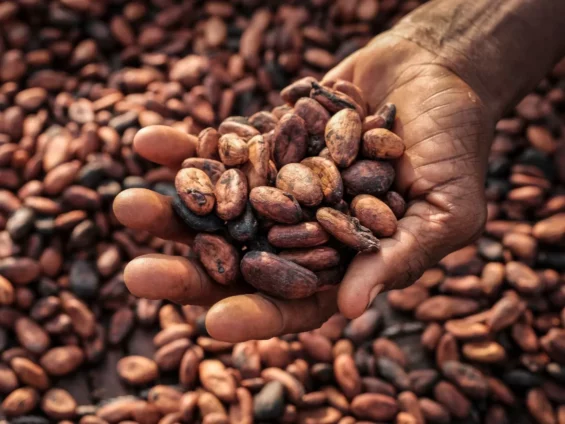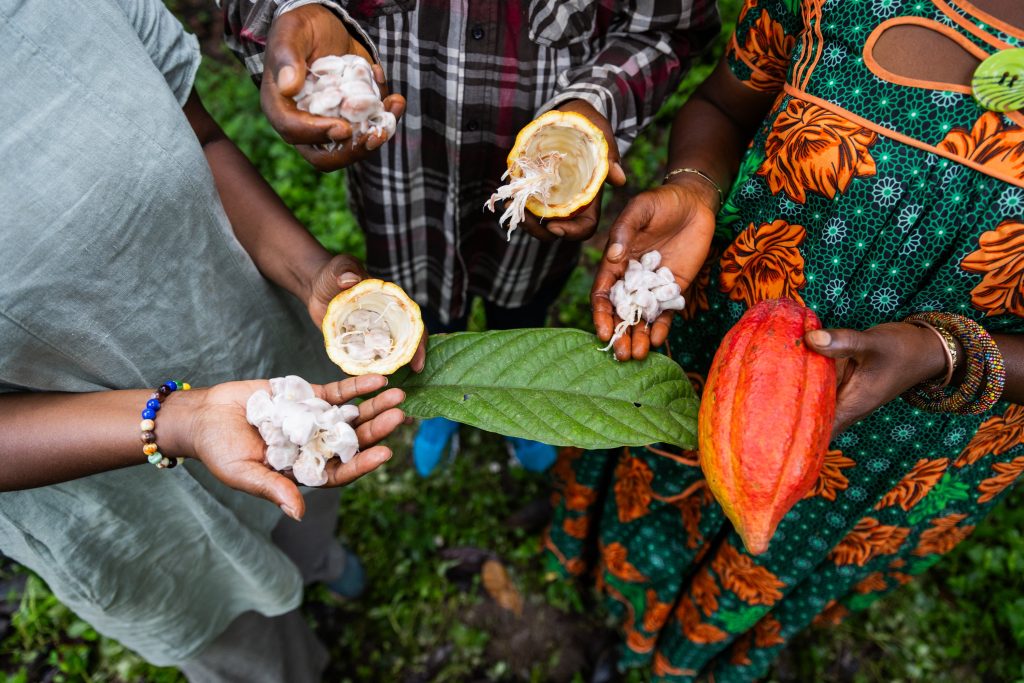Dr. Isaac Opoku, Ranking Member of Parliament’s Agriculture Committee, has criticized the government for failing to fulfill its 2024 campaign promise to pay cocoa farmers GH₵6,000 per bag of cocoa beans.
Speaking at a press conference on Tuesday, Dr. Opoku accused the government of betraying cocoa farmers, highlighting that the current producer price is still far below the promised figure, even as global cocoa prices have risen significantly. In the lead-up to the 2024 elections, the government reportedly made a campaign promise to increase the producer price of cocoa to GH₵6,000 per bag. This was aimed at winning the support of cocoa farmers—an important demographic in Ghana’s agricultural sector and national economy. Cocoa is one of Ghana’s largest export earners, and farmers have long called for better compensation to match rising global market prices and increasing costs of production. As of now, the government has not fulfilled this promise, and the producer price of cocoa remains significantly lower than GH₵6,000 per bag. This has sparked criticism from various stakeholders, including opposition parties and farmer groups, who feel that the government has broken its promise.
Dr. Isaac Opoku, the Ranking Member on Parliament’s Agriculture Committee, held a press conference on Tuesday to address this issue. In his remarks:
- He accused the government of betrayal, saying it had failed to honor its word to cocoa farmers.
- He emphasized that despite a global surge in cocoa prices, Ghanaian farmers are not reaping the benefits.
- He suggested that the gap between international cocoa prices and local producer prices is unfair and demoralizing to farmers, who are already struggling with rising input costs, climate impacts, and poor infrastructure.
This failure to deliver on the GH₵6,000 promise has political, economic, and social implications:
Social: Cocoa farmers may feel neglected and marginalized, leading to frustration or even protest actions.
Political: It may affect the government’s credibility and trustworthiness, especially in rural areas where cocoa farming is a key livelihood.
Economic: Low cocoa prices could discourage production, potentially reducing export earnings and affecting Ghana’s economy. Many cocoa farmers have expressed disappointment and frustration over the new price, which they say does not reflect the recent global surge in cocoa prices. On the international market, Ghana’s cocoa is now priced at $5,040 per tonne, starting August 7—an all-time high in dollar terms.
Despite this, the increase in the domestic producer price has not matched expectations, especially considering rising production costs, fertilizer prices, and climate-related threats affecting yields. The issue has intensified scrutiny on COCOBOD and the Ministry of Food and Agriculture. Farmer associations and civil society organizations are calling for:
- Greater transparency in how cocoa prices are determined.
- A fairer share of export revenues for farmers.
- Policy reforms that prioritize farmer welfare, especially in pricing decisions.
There are growing concerns that failure to address these issues could lead to declining morale in the sector, reduced cocoa production, and possible social unrest in cocoa-growing communities. The controversy has also taken on a political dimension. Dr. Opoku’s remarks aim to highlight inconsistencies in the NDC’s position, accusing them of hypocrisy and poor economic planning. His comments suggest that the party, now in power, is unable to meet the same pricing demands it made of its predecessors—raising questions about the realism and sincerity of past The cocoa pricing dispute underscores a broader challenge in Ghana’s agricultural sector: how to balance global market conditions, government revenues, and farmer livelihoods. As the 2024/2025 cocoa season begins, the spotlight is firmly on the government to not only justify its pricing decision, but also to deliver meaningful improvements to the lives of cocoa farmers—many of whom feel shortchanged despite their central role in the national economy.










